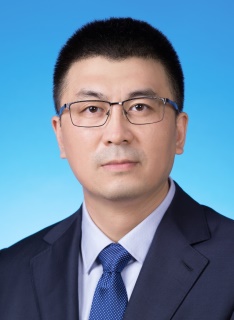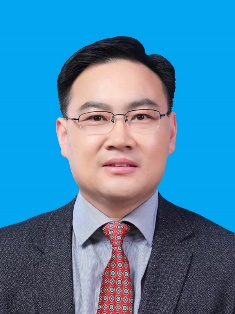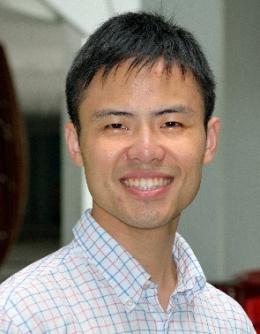Development Forum 1: Education Reform on Automatic Control
7月30日 13:30-15:30 |
July 30, 13:30-15:30 |
云安会堂2楼1会议室 |
Room 1, 2rd Floor, Yunan Auditorium Conference |
Education Reform on Automatic Control 自动控制教育改革论坛 Chairs: Quan Pan (Northwestern Polytechnical University, China) Ding Liu (Xi’an University of Technology, China) |
Panelists: Ligang Wu (Harbin Institute of Technology, China)
Jian Sun (Beijing Institute of Technology, China)
Yuxin Zhao (Harbin Engineering University, China)
Qinglei Hu (Beihang University, China)
Peng Cheng (Zhejiang University, China)
Han Liu (Xi’an University of Technology, China)
Abstract: With the continuous development of control technology, the education reform on automatic control is facing some challenges. In this development forums, we are honored to invite experts and professors from well-known universities to give important speeches, introducing the reform and practical achievements in the construction and improvement of the discipline of automatic control, the reform of the training mode for outstanding talents in automation, and the cultivation of innovative abilities in automatic control talents. This forum provides an opportunity for interested participants to interact with experts in the field.
 Speaker: Ligang Wu, Harbin Institute of Technology, China
Speaker: Ligang Wu, Harbin Institute of Technology, China
Title: Outstanding Aerospace Talent Cultivation: Interdisciplinary, Industry-Education Fusion, and Research-Education Integration
Abstract: The School of Astronautics at Harbin Institute of Technology is the first institution in China primarily focused on training advanced aerospace professionals and conducting high-tech aerospace research. Over the past 37 years since its establishment, generations of faculty and students at the School of Astronautics have been tirelessly working towards the Chinese Dream and the Aerospace Dream, with over ten thousand graduates contributing to the forefront of China's aerospace industry. This report highlights the strategies, methods, and progresses adopted by the School of Astronautics at Harbin Institute of Technology in cultivating aerospace professionals. The report covers the construction of essential conditions for talent development, including program setup, cultivation plans, faculty strength, and teaching practice platforms. Additionally, it discusses the School of Astronautics' practices in the interdisciplinary, industry-education fusion, and research-education integration for collaborative cultivation, as well as its efforts in promoting high-quality employment for graduates.
Ligang Wu received the B.S. degree in Automation from Harbin University of Science and Technology, China in 2001; the M.E. degree in Navigation Guidance and Control from Harbin Institute of Technology, China in 2003; the PhD degree in Control Theory and Control Engineering from Harbin Institute of Technology, China in 2006. He was a Research Associate in the Department of Mechanical Engineering, The University of Hong Kong, a Senior Research Associate in the Department of Mathematics, City University of Hong Kong, and a Research Associate in the Department of Electrical and Electronic Engineering, Imperial College London. He joined the Harbin Institute of Technology in 2008, and now he is a Full professor and the Dean of the School of Astronautics of Harbin Institute of Technology.
Prof. Wu is a Fellow of the IEEE and a Fellow of CAA, and the Highly Cited Researcher (since 2015). He was the winner of the National Science Fund for Distinguished Young Scholars in 2015, and was named as the National High-Level Talents (Distinguished Professor) in 2017. He received the China Youth Wusi Medal in 2016. He serves/served as an Associate Editor for a number of journals, including IEEE Transactions on Automatic Control, IEEE Transactions on Industrial Electronics, IEEE/ASME Transactions on Mechatronics, and IEEE Industrial Electronics Magazine. He has published 8 research monographs and more than 260 research papers in international referred journals. His current research interests include analysis and design for complex dynamical systems, autonomous intelligent unmanned systems, intelligent systems and robot technology, machine vision and intelligent detection technology, and power electronic systems.
 Speaker: Jian Sun, Beijing Institute of Technology, China
Speaker: Jian Sun, Beijing Institute of Technology, China
Title: Discipline Construction in Control Science and Engineering - Taking the School of Automation, Beijing Institute of Technology as an Example
Abstract: This talk first introduces the significance of discipline construction and summarizes the core elements of discipline construction. Then, taking the School of Automation of Beijing Institute of Technology (BIT) as an example, we introduce the construction of the first-level discipline of Control Science and Engineering at BIT from several aspects, including talent cultivation, scientific research, team building, platform construction, and international exchange.
Jian Sun received the B.S. degree from the Department of Automation and Electric Engineering, Jilin Institute of Technology, Changchun, China, in 2001, the M.Sc. degree from Changchun Institute of Optics, Fine Mechanics and Physics, Chinese Academy of Sciences (CAS) Changchun, in 2004, and the Ph.D. degree from the Institute of Automation, CAS, Beijing, China, in 2007.
He was a Post-Doctoral Research Fellow with Beijing Institute of Technology, Beijing, from 2007 to 2010. He was a Research Fellow with the Faculty of Advanced Technology, University of Glamorgan, Pontypridd, U.K., from 2008 to 2009. In 2010, he joined the School of Automation, Beijing Institute of Technology, where he has been a professor since 2013. His current research interests include networked control systems, time-delay systems, and security of cyber-physical systems.
Dr. Sun is an Editorial Board Member of IEEE Transactions on Systems, Man, and Cybernetics: Systems, the Journal of Systems Science and Complexity, and Acta Automatica Sinica.
 Speaker: Yuxin Zhao, Harbin Engineering University, China
Speaker: Yuxin Zhao, Harbin Engineering University, China
Title: Thinking, Exploration, and Practice on College Management: Taking the College of Intelligent Systems Science and Engineering of HEU as an Example
Abstract: College management issues are an important carrier and lever of modern university governance. This report combines the exploration and practice of the College of Intelligent Systems Science and Engineering at Harbin Engineering University in recent years in college governance and discipline construction, and introduces its development path and construction experience in school governance from multiple disciplinary dimensions such as governance system, discipline positioning, talent cultivation, scientific research, and talent team. In particular, it puts forward its own thoughts on how to form its own unique advantages and optimize discipline structure, which has certain reference and guiding significance for promoting the development of universities.
Yu-Xin Zhao received his B.S in Automation, and Ph.D. degree in Navigation, Guidance and Control with Harbin Engineering University (HEU), Harbin, China, in 2001 and 2005, respectively. He has completed post-doctoral research in control science and engineering at the Harbin Institute of Technology, Harbin, in 2008. From 2012 to 2013, he visited the Centre for Transport Studies, Imperial College London as a research scholar. He is currently the vice president of HEU and a professor with the College of Intelligent Systems Science and Engineering. He is an IET Fellow and a Senior Member of IEEE. Dr. Zhao is the director of the Engineering Research Center of the Ministry of Education for Navigation Instruments, and has won the China Youth Science and Technology Award and Fok Ying Tung Education and Teaching Award. He is selected for the National Leading Talent Support Program, and currently is the leader of a national innovation team. He has won three first prizes for provincial and ministerial level technological inventions, and won the second prize of national teaching achievements and the first prize of education and teaching achievements of the China Association of Automation. His current research interests include artificial intelligence, filtering theory, marine navigation system, and intelligent transportation system. He has published 3 monographs and over 100 papers in the international journals and conferences.
 Speaker: Qinglei Hu, Beihang University, China
Speaker: Qinglei Hu, Beihang University, China
Title: Reflections and Explorations on the Sustainable Development of Talent Cultivation in Control Science and Engineering at Beihang University
Abstract: Focusing on the three dimensions of "disciplinary development, scientific research, and talent cultivation," we will explore the history, current status, and prospects of the school. We will share insights on talent cultivation in sustainable development, emphasizing the need to nurture interdisciplinary professionals with diverse knowledge and skills. Drawing on the school's background in control science and engineering, we will deconstruct the research paradigms and research organization under the new quality productive forces. We will discuss the type of control professionals needed in the new era to provide strong talent assurance and intellectual support for the nation's "four orientations" in the development of science and technology.
Qinglei Hu received the B.Eng. degree in electrical and electronic engineering from Zhengzhou University, Zhengzhou, China, in 2001, and the Ph.D. degree in control science and engineering with the specialization in guidance and control from the Harbin Institute of Technology, Harbin, China, in 2006. From 2003 to 2014, he was with the Department of Control Science and Engineering, Harbin Institute of Technology. He joined Beihang University in 2014 as a Full Professor. He is currently the dean with the School of Automation Science and Electrical Engineering, Beihang University. His current research interests include fault diagnosis and fault-tolerant control and their applications in spacecraft systems, intelligent perception and manipulation of space non-cooperative targets, and micro-nano operation. He has published 3 monographs and over 200 papers in the international journals, and is a Highly Cited Chinese Researcher (since 2014).
 Speaker: Peng Cheng, Zhejiang University, China
Speaker: Peng Cheng, Zhejiang University, China
Title: Practice of Cultivating Academic Innovation Ability of Engineering Doctoral Students: An Example of Control Science and Engineering Discipline in Zhejiang University
Abstract: The cultivation of academic innovation ability has an important role on the improvement of overall quality of graduate students. This report takes the academic team of Zhejiang University in Control Science and Engineering Discipline as an example, and on the basis of analyzing the target orientation, operation mode and mechanism of engineering doctoral training, summarizes the practical measures of academic innovation ability cultivation of engineering doctoral students from several major aspects of meeting the national needs, establishing the multidisciplinary integration mechanism, casting the team culture, standardizing the laboratory system, and building joint talents cultivation long-term mechanism. The innovation points of academic innovation ability cultivation are condensed from aspects of cultivation concept, guidance mode, and cultivation method. The report also presents the practical effectiveness of academic innovation ability cultivation of engineering doctoral students.
Peng CHENG is currently executive dean, and Changjiang Chair Professor for college of control science and engineering, Zhejiang University. His research interests include cyber-physical systems, control system security and cloud networking. He has been awarded National State Science and Technology Progress Award, Natural Science Award of Ministry of Education, Youth Science Award of the Ministry of Education, CAA Science and Technology Progress Award. His research received IEEE INFOCOM’14 best demo award and IEEE IEEE ICCC’14 best paper award. He was elected as China Youth Science and Technology Award, FYT Foundation Young Teacher, JSPS Invitation Fellowship, IEEE ComSoc Asia Pacific Outstanding Young Researcher Award. He serves/served as Associate Editor of IEEE Transactions on Cloud Computing, IEEE Transactions on Control of Network Systems, Guest Editor of IEEE Transactions on Automatic Control, and vice director of CAA Committee for Industrial Control System Security.
 Speaker: Han Liu, Xi’an University of Technology, China
Speaker: Han Liu, Xi’an University of Technology, China
Title: National Cross-College Innovation and Entrepreneurship Training Camp for University Students
Abstract: This report analyzes the difficulties currently faced in cultivating the innovation and entrepreneurship of college students, and explores the training camp model for cultivating college students' innovation and entrepreneurship across schools. It focuses on analyzing the theme, concept, implementation plan, and implementation effect of the 2023 National Cross-School Student Innovation and Entrepreneurship Training Camp held in Xi'an, exploring an effective mode of cultivating the innovation and entrepreneurship of college students under new circumstances. Finally, based on the experience, it proposes the activity plan for the 2024 National Cross-School Student Innovation and Entrepreneurship Training Camp.
Han Liu received the B.S. degree in automation from the Xi’an University of Technology, Xi’an, China, in 1993, and the M.S. and Ph.D. degrees in control science and engineering from the Xi’an University of Technology, Xi’an, in 1996 and 2003, respectively.
In 2019, he enjoyed Special Government Allowance by Chinese Government. In 2022, he was selected into the special support plan for high-level talents in Shaanxi Province, and in 2018, he won the Shaanxi Higher Education Teaching Master Award. He is currently a Professor with the School of Automation and Information Engineering, Xi’an University of Technology. He has authored more than 150 journal and conference papers. His research interests include industrial artificial intelligence, explainability artificial intelligence, soft sensor, intelligent information processing, and data-driven control.